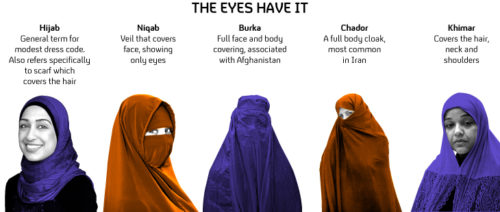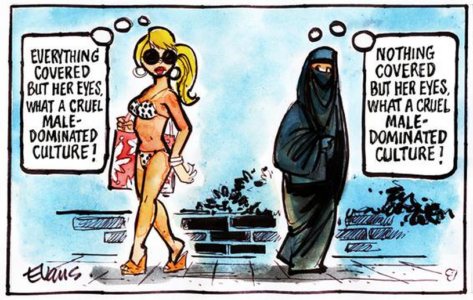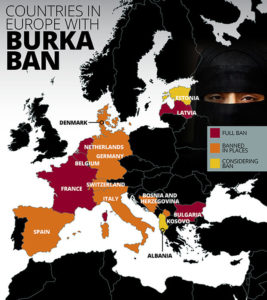Unveiled: Behind the Scenes of Europe’s Burqa Bans
Belgium’s Burqa Ban upheld by ECHR
After a turbulent six years, Belgium’s decision to ban full-face veils has been upheld by the European Court of Human Rights. The Strasbourg court ruling followed riots that erupted in Molenbeek in 2012 after a woman wearing a niqab was asked to remove it. The case was brought to the ECHR by two complainants, a Belgian national, Saima Belcacemi, and a Moroccan citizen, Yamina Oussar. The two women argue that the law is discriminatory and infringes on their rights and free will. The court held, however, that the ban was proportionate to its goals of ensuring public safety, gender equality, and “living together”.
Belgium is not the first country to have its veiling bans challenged at the ECHR. In 2014, the Court also upheld the French ban on full-face veils in public. Despite their consistent rulings, the place of veils in public remains a controversial topic in Europe. All bans are not made equal however. Across Europe bans are different in what types of veils are banned and where they are not allowed. To understand these laws though, we must understand what certain words for veils actually mean. As the world becomes more globalized and the veil ban debates proliferate through public media, words like “burqa” and “niqab” tend to be thrown around, sometimes incorrectly. So what exactly do they mean?

Photo from Channel 4
Now that it’s all clarified what each of these words actually mean, we can start having more meaningful discussions about the place of veils in society. Many Islamic and non-Islamic activists have been quick to note the disproportionate effect of veil bans on Muslim women. Though Christians and Jewish women also sometimes wear religious head coverings, they are not traditionally meant to cover their full-face and are thus not affected by most veil bans.
Aside from the common defense of burqa bans being for public safety, there is a frequent debate over whether burqas, niqabs, and hijabs oppress women. There are reasonable arguments for both sides, but what is most important is who leads this discussion. The question of whether these religious veils are oppressive should be decided by those actually wearing them – Muslim women. It is reasonable for a government to make decisions about their place in terms of public safety and state-related activities (example: allowance of headscarves in official documents such as passports, etc) but it does not seem like the right authority to decide what does and does not oppress women. Any legislation that tells women what they can and cannot wear is obviously going to be controversial, so it is important for a government trying to make any legislation surrounding the prohibition of veils or headscarves to focus more so on necessity for public functioning and safety than gender equity, or at the very least make these decisions in accordance with advisory opinions from relevant advocacy groups for women or muslim women particularly.

Cartoon credit to Malcolm Evans
Given the court precedence justifying bans on burqas and niqabs are likely to continue throughout many European countries. Below we’ve attached a map from the Daily Star comparing bans across Europe on face veils. Should veils be banned in public or just for certain professions or circumstances? Tweet us @CfEP_

